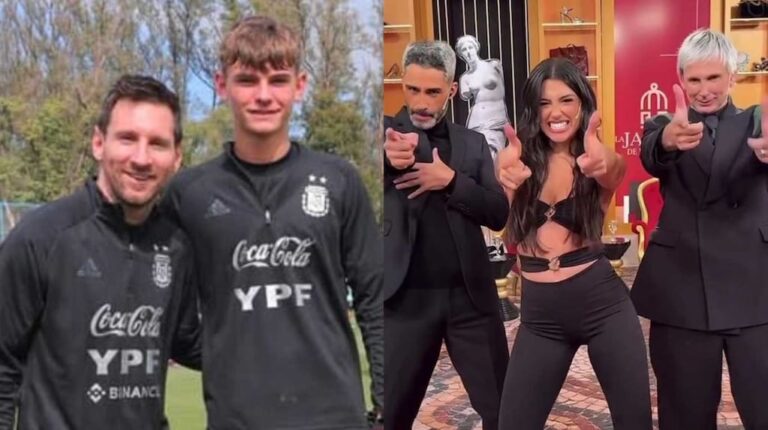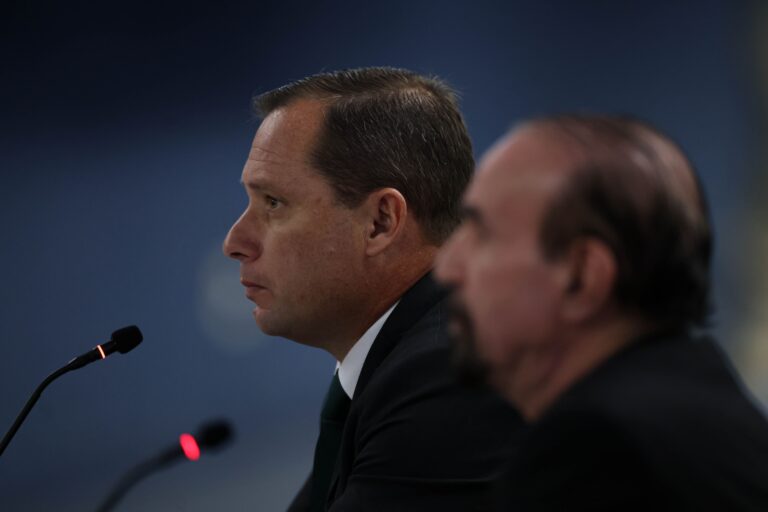Sabrina Carpenter’s Provocative Return: Is She Reclaiming Female Sexuality or Reinforcing Stereotypes?
Sabrina Carpenter Seizes Control with New Release: A Bold Step into Female Empowerment or Misguided Sexual Provocation?
By all accounts, Sabrina Carpenter is in control. At the tender age of 26, the singer-songwriter, who began her career after being signed by Disney at just 12 years old, has spent over a decade and released five albums honing her craft. Her latest single, “Espresso,” from the upcoming album Short n’ Sweet, has quickly been dubbed the song of summer 2024. This cheeky, catchy tune explores themes of flirtation and desire, while Carpenter’s astute lyrics showcase her intelligence and deadpan humor.
A Flourishing Career Built on Self-Expression
Carpenter has demonstrated a keen ability to write or co-write all her songs, infusing them with her signature style: saucy, clever, and unabashedly candid about her experiences and feelings towards relationships. The new single “Manchild” continues to exemplify this flair, featuring the provocative line, “Did you say you’re finished? Didn’t know we started.” In a recent Rolling Stone profile, Carpenter attributed her creative output to a vibrant period of inspiration, indicating her commitment to producing new material without waiting for the traditional timing of album releases.
But Carpenter’s boldness isn’t limited to her lyrics. The accompanying music video for "Manchild" depicts her as an eye-rolling passenger in a surreal desert landscape, critiquing a parade of incompetent men. This playful imagery evokes the timeless trope of the attractive yet misunderstood woman, striking a balance between societal expectations and her own sense of agency.
Navigating Controversy: Empowerment Versus Objectification
Despite the confidence Carpenter exudes, her artistic choices have sparked significant controversy. Social media backlash has been swift and fierce, with critics arguing that the imagery in her latest single’s marketing is regressive, likening it to "insanely misogynistic" portrayals of women. These vociferous responses reflect a societal reckoning with female sexuality in pop culture, illuminating disparities in perceptions of empowerment.
On platforms like Reddit and Instagram, many users—especially women—seem to feel that Carpenter’s visuals undermine her previous contributions to feminist discourse. They contend that she is surrendering to the male gaze, disregarding the subtleties of satire in her work. A Glasgow women’s aid group even labeled the imagery as “tired tropes that reduce women to pets, props, and possessions.”
The Stark Contrast in Acceptance of Female Sexuality
While Carpenter’s bold aesthetic choices ignite spirited debates, they also raise critical questions about societal norms surrounding female sexuality. Discussions around empowerment often revolve around women taking charge of their sexual narratives. Yet, Carpenter’s recent imagery introduces a paradigm that many seem unprepared to confront: the coexistence of submission and empowerment.
The current discourse often favors dominance as the essential mode of female power. Phrases like “be on top,” or “have sex like a man,” echo throughout discussions on what modern female empowerment should embody. However, Carpenter’s portrayal contradicts this ideal, presenting a complex narrative where submission can coexist with strength and self-awareness. This duality provokes discomfort and challenge for audiences, who are trained to view such imagery through a binary lens.
Finding Humor in the Controversy
Amidst the outcry, it’s evident that Carpenter is entirely aware of her choices. The artistic risks she’s taking are deliberate and designed to spark conversation, similar to past pop icons like Madonna who have employed sexual provocation to shed light on societal expectations. Both Carpenter’s album cover and the music video flaunt a cheeky irreverence, pushing boundaries that stimulate thought and discussion.
For Carpenter, the freedom to explore her sexuality in her artistic expression seems to be a priority. Whether one views her work through the lens of empowerment or sees it as problematic, it’s undeniable that her willingness to engage with these conversations will continue to shape her trajectory in the music industry.
As Carpenter herself noted in her Rolling Stone interview, the process of creation is exhilarating. “My brain is sharp, let’s write,” she stated, indicating that her prolific output is driven by inspiration rather than a desire to fit into conventional frameworks.
Concluding Thoughts: A New Era in Pop Music
Though Sabrina Carpenter’s artistic choices work their way into vibrant discussions on femininity, empowerment, and sexual expression, the central question remains: what does this mean for the future of female pop stars? In an era where authenticity reigns, Carpenter stands as a figure wrestling with complex identities within her music.
As the summer of 2024 unfolds, audiences are left debating: is Carpenter’s performance a misguided retreat from feminist ideals, or is it an empowering reclamation of women’s agency over their sexuality? One thing is certain: Sabrina Carpenter is navigating her own course and knows exactly how to keep us tuned in, proving that whether we love her transformatively or critique her actions, at least we’re all still talking about her music.



